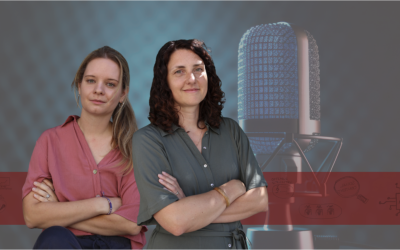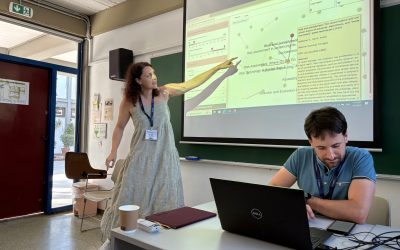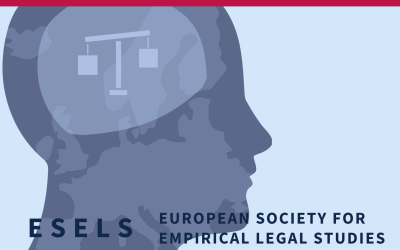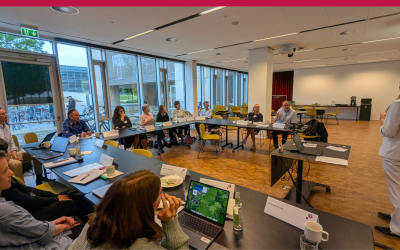NEWS
Stay up to date with the project’s latest activities, including workshops, conferences, publications, and other news, right here on this page.
First Sentrix Workshop
As part of the ERC Sentrix project, a workshop dedicated to the decision-making architecture in sentencing will be held in Bled from November 12 to 14, 2025. Discussions will focus on the factors that shape the environment in which sentencing decisions take place...
Linguistic ambiguity in court
Researchers from the Institute of Criminology at the Faculty of Law in Ljubljana, Dr. Mojca M. Plesničar and Manja Skočir, reveal in a podcast that language is both a tool and a weapon in the courtroom. It is a fundamental tool used by lawyers and is crucial in the...
Can artificial intelligence help understand the sentencing environment?
At the Eurocrim conference in Athens, members of the research team presented the first phase of the project, in which they used artificial intelligence to map the research field of sentencing decision-making. How? They used artificial intelligence to create an...
“We have also encountered truly horrific cases, but the court’s sentence did not even reach the upper half of the threatened range of sentences”
In the interview, Assoc. Prof. Dr. Mojca M. Plesničar talks about what happens when subjective, anecdotal truths are confirmed by objective data that actually show a milder, even particularly mild, treatment of sexual predators? The interview also raises questions...
Presentation of the Sentrix project at the ESELS conference in Toulouse
At the annual conference of the European Society for Empirical Legal Studies (ESELS), held in Toulouse in June 2025, Dr. Mojca Plesničar and Dr. Dean Lipovac presented the first stage of the Sentrix project – a comprehensive and methodologically innovative literature...
The use of the concept of culture in sentencing research
In early June, researchers from the Institute of Criminology, Dr. Miha Marčenko, Lovrena Jeromelj and Assoc. Prof. Dr. Mojca M. Plesničar attended the European seminar The Role of Culture in Sentencing & Penal Decision-Making, which took place at the Faculty of...
Dr. Mojca Mihelj Plesničar appointed ERC ambassador: “Sometimes, the most important step is simply allowing ourselves to believe – and to try.”
The European Research Council (ERC) has today announced its ambassadors, among which Assoc. Prof. and Senior Research Fellow at the Institute of Criminology, Dr. Mojca Mihelj Plesničar, has been selected as Slovenian ERC Ambassador.The ERC Ambassador network will work...
Researcher Dr Mojca M. Plesničar receives prestigious ERC grant
The Sentrix project introduces a new approach based on decision architecture to investigate a complex social and legal question: how do judges make sentencing decisions? The research will focus on mapping the “sentencing environment,” which includes both...
+386 1 4203 242
inst.crim@pf.uni-lj.si
Inštitut za kriminologijo
Poljanski nasip 2
1000 Ljubljana
Funded by the European Union. Views and opinions expressed are, however, those of the author(s) only and do not necessarily reflect those of the European Union or European Research Council. Neither the European Union nor the granting authority can be held responsible for them.














